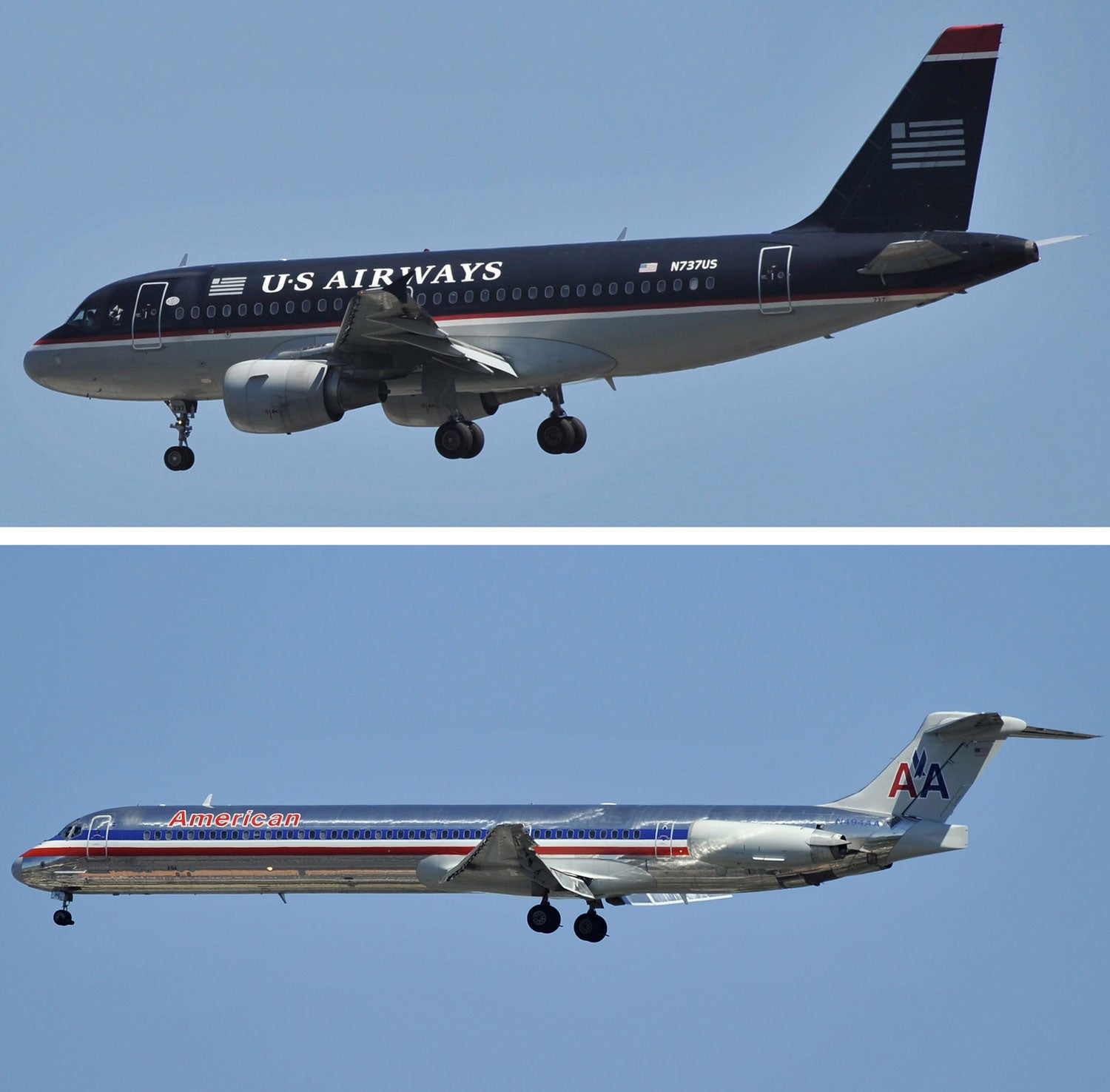Transatlantic air fares set to rise following merger between American Airlines and US Airways

Transatlantic air fares are set to rise following the merger between American Airlines and US Airways.
The two carriers are currently fourth and fifth largest in the USA, but when combined will become the world’s largest airline – with 170m passengers a year and a fleet of nearly 1,000 aircraft.
At present they compete strenuously for British visitors to America. US Airways positions itself as the budget option, usually undercutting all other carriers with its link from Gatwick to Charlotte, North Carolina, and onward connections to dozens of cities. For example, travelling in one week to Salt Lake City, US Airways is substantially below the competition with a fare of £618 return.
With the amalgamated airline more influential in controlling supply, fares are likely to rise. But British Airways customers will find they have access to a wider range of services in the US, as a result of BA's existing code-share link with American Airlines.
This is the third "mega-merger" since 2008, following Delta's tie-up with Northwest and United's amalgamation with Continental. In each case, the brand of the smaller party is swiftly erased - and that is the fate of US Airways. But US Airways' chief executive Doug Parker will take the same position in the combined carrier.
The move will also shift the balance of power of the world's airline alliances. American Airlines is the biggest member of Oneworld, which includes British Airways. US Air is currently in the larger Star Alliance, but is likely to exit once the deal is complete.
Join our commenting forum
Join thought-provoking conversations, follow other Independent readers and see their replies
Comments